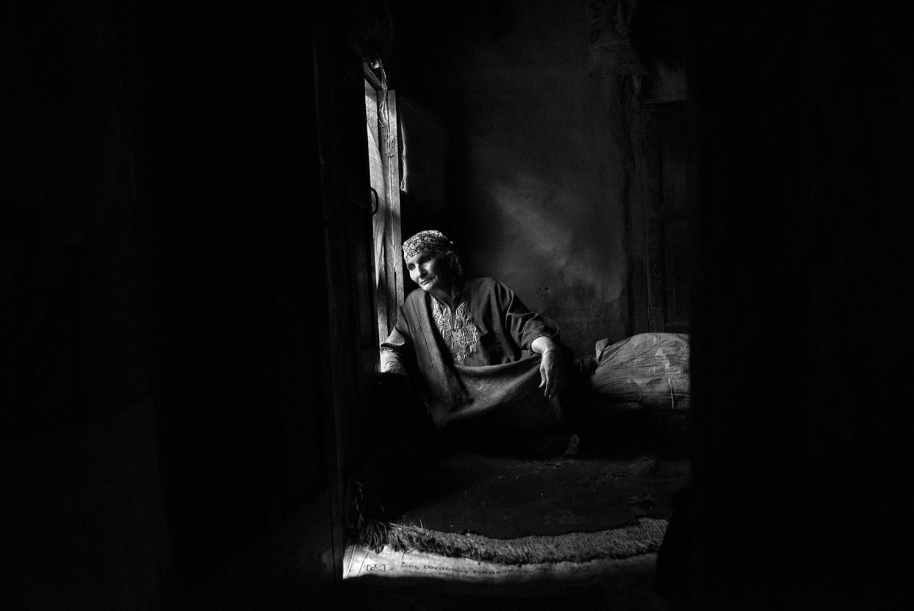

Taja Begum spends most of her time perched near the window of her small mud house where she lives alone. Two of her sons, Ghulam Nabi Dar, 28 years old at the time, and Mushtaq Ahmad Dar, 14 years old at the time, went missing fifteen years ago on the eve of Eid, the holy Muslim festival. She doesn’t remember the exact date but recalls that it happened only a few months after the Indian forces had killed her eldest son, Mohammad Amin Dar. Taja’s husband died of a brain hemorrhage three years after the incident. Though locals had offered her help in building a new house, she refused. “I will live here till I die because if my sons return, they will come straight to the house where I brought them up.”
ZEKE Award: Honorable Mention
The Endless Wait
Photographer: Showkat Nanda
ZEKE Award: Honorable Mention
Exhibit Title: The Endless Wait
Location: India
In November 2015, Hajra Begum, a 74-year-old widow from a small frontier hamlet in Kashmir, received a fist-sized bag of soil. It was from the grave of her only son, who had disappeared in the summer of 1997. Now, her 18-year long wait was over.
Most women are not as ‘lucky’ as Hajra.
In the last 28 years,the humanitarian cost of the conflict in Kashmir has beenhuge. Aside from nearly 90,000 deaths, thousands have gone missing after they were picked up by the Indian forces.
There are hundreds of women who have been carrying the burden of Kashmir’s enforced disappearances.Mothers and wives of missing men spend their entire life and all their possessions, often in abject poverty, searching for their loved ones in jails, police stations, army camps and torture centers.Human rights groups place the numbers at8,000, which, in recent years have found nearly 2,700 unmarked graves. Most families have never found their loved ones, so even with the occasional news of more graves, they continue to hold out hope.
showkatnanda@gmail.com
Make Comment/View Comments